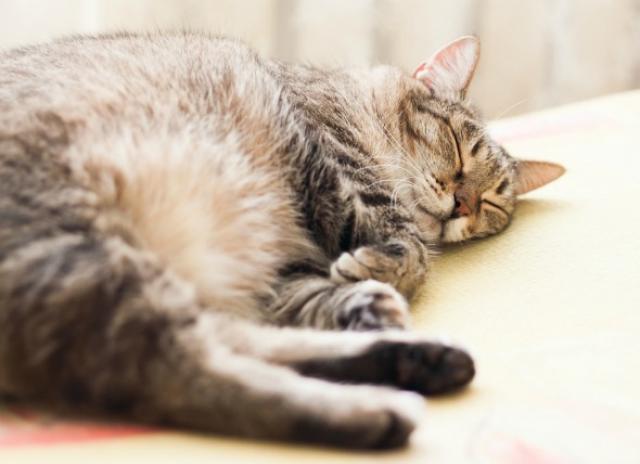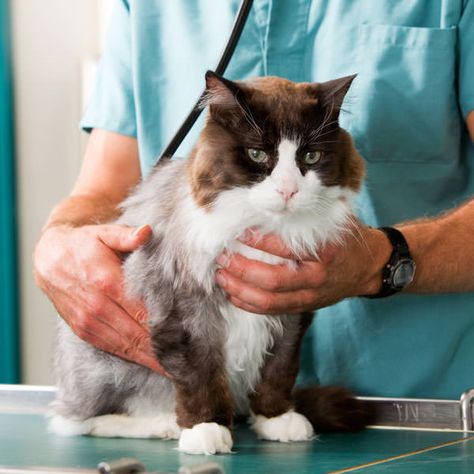ascites in cats symptoms
Diuretic therapy should slowly reduce ascites without causing dehydration metabolic alkalosis or hypokalemia. The volume of fluid can vary between cases.

Understanding Ascites In Cats Tufts Catnip
Treatment Of Anemia In Cats.

. Common symptoms associated with Ascites in cats include. Cats with ascites are usually presented to the veterinarian with a complaint of abdominal distention. Cats can be infested with the microscopic larvae which then grow in to mature worms which.
Therapeutic abdominocentesis may be a beneficial option to relieve discomfort in many but not all cases of ascites. Any landlord is very happy when his pet is gaining weight but too much belly in the cat may indicate incipient disease. This might cause symptoms including loss of appetite abdominal discomfort as well as vomiting.
While a swollen stomach is one of the most obvious signs of ascites any dramatic shift in a cats appetite weight body temperature excremental function or sudden sensitivity during a tummy rub can also be warning signs. Pancreatitis is linked to some cases of viral or parasite infections like toxoplasmosis or pancreatic flukes and other problems like an injury but these arent common causes. Thus diuretics are usually also recommended.
It is necessary to know what is the origin of the problem of the abdominal organs to find the best treatment. Heartworms are a parasite of the blood which is spread by mosquitoes. Although cats are a necessary part of the life cycle of T.
This disease is uncommon but to help the animal it is important to notice the first symptoms. Abdominal dropsy or ascites - what is it. Treatment of ascites in cats depends largely on the root of the cause.
Treatment of Ascites in Cats. In cats ascites is caused by the leakage of fluid into the abdomen from blood vessels lymphatics internal organs or abdominal masses. Some of the symptoms you may notice include.
Unfortunately there are very few benign causes of ascites. It may have a slow or sudden onset. Specific treatment for the primary cause is recommended.
In severe cases of anemia in cats a blood transfusion is required. Ascites can be classified as one of several types of fluid most commonly pure or modified transudates or exudates. Ascites pronounced a-site-eez is the accumulation of fluid in the abdominal cavity.
Acute neurological signs and digestive tract irritation. Fluid buildup in the abdomen eventually creates so much pressure inside the cat. One of the most important changes is lowering your cats salt intake which will reduce bloating and water retention.
A wide range of causes might be responsible for the ascites hence treatments may vary accordingly. Ascites pronounced a-site-eez is the accumulation of fluid in a cats abdominal cavity. Reducing ascites by 115 of total body wtday is recommended by initially using combined treatment with furosemide 12 mgkg PO bid and spironolactone loading dosage 24.
By Nomi Berger. Many symptoms develop quickly especially in the case of a large leakage. Fortunately most anemic cats do not require this treatment and can recover after treatment of the anemias underlying cause.
Symptoms of ascites in cats may begin slowly but then build up over time as more fluid collects in the abdomen. Congestive heart failure neoplasia feline infectious peritonitis and hepatic disease are among the most common causes of ascites in cats. It is a sign of disease rather than a diagnosis.
This condition is dangerous for. Pancreatitis is often only a minor part of these conditions too. Other symptoms may develop slowly on the other hand.
The symptoms your cat exhibits will depend on the underlying cause of the fluid build-up. Ascites is not a specific condition but a physical abnormality that develops as a consequence of an underlying disease. Common symptoms include the following.
For example a cat with ascites. Symptoms of Ascites in Cats. Below is an overview about ascites in cats followed by in-depth information about the causes diagnosis and treatment of this condition.
Tumors may require both surgery and medications. The symptoms your cat exhibits will depend on the underlying cause of the fluid build-up. A swollen stomach is one of the most obvious symptoms of ascites in cats but any dramatic shift in appetite weight body temperature excremental function or physical sensitivity during a belly rub might indicate excess abdominal fluid in cats or ascites in cats.
The major cat diseases and afflictions that can cause ascites in cats that well cover here include. Toxoplasmosis is a disease caused by the single-celled parasite Toxoplasma gondii T. Symptoms of ascites in cats may begin slowly but then build up over time as more fluid collects in the abdomen.
A small volume may only be detectable on palpation of the abdomen or even with ultrasound. Ascites is the medical term used to describe fluid accumulation in the abdominal cavity. Other less common causes are tumors inflammatory bowel disease diabetes and certain medications.
This may save a cats life but. Abdominal pain and discomfort. Feline infectious peritonitis Another cause of ascites in cats feline infectious peritonitis or FIP is caused by a virus that grows on white blood cells directly affecting the stomach lining of cats.
Affected cats are disorientated ataxia staggering dull with a lack of appetite salivation. Fluid buildup can put pressure on the stomach and chest making it difficult for your cat to eat or breathe. It is not necessary to self-medicate when it comes to the life of the ward.
Additionally a diagnosis should only be done by a. The reason that it leads to ascites is because the cats heart is struggling to distribute blood throughout its body and the symptom of swelling appears also in the cats abdomen. A swollen stomach is one of the most obvious symptoms of ascites in cats but any dramatic shift in appetite weight body temperature excremental function or physical sensitivity during a belly.
Gondii the parasite rarely causes clinical disease in them. It is one of the most common parasitic diseases and infects nearly all warm-blooded animals including pets and humans. If anemia is severe enough to be life-threatening a blood transfusion is needed.
This classification helps narrow a very broad list of differentials for primary etiology. Abdominal effusion or ascites in cats is a medical condition which refers to the accumulation of fluid in the abdominal area of the cat. Antifreeze causes three stages of poisonings which are reflected in the clinical signs which start to develop within hours of ingestion of the poison.
Symptoms of Ascites will vary depending on the degree of leakage and the severity of the condition. Symptoms Of Antifreeze Poisoning In Cats. Because there are so many possible causes of ascites the historical findings will vary in each individual case.
Congestive heart failure neoplasia feline infectious peritonitis and hepatic disease are among the most common causes of ascites in cats. Symptoms may vary depending on the underlying cause of ascites and the amount of fluid in the abdomen. Ascites has many causes most of which can be very serious.
For example an infection will be treated with antibiotics while trauma may require surgery. Some of the symptoms you may notice include.

Possible Reasons Why Your Cat Has A Swollen Abdomen Or Belly Pretty Cats Cats Tabby Cat
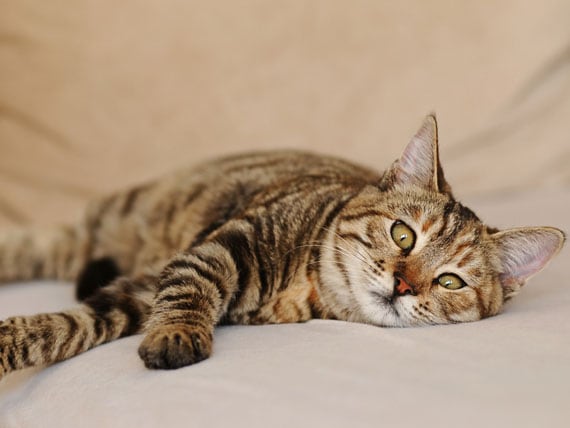
Vomiting With Bile In Cats Petmd

What Are The Causes Of Ascites In Cats In 2020 Cat Health Care Cat Health Cat Diseases
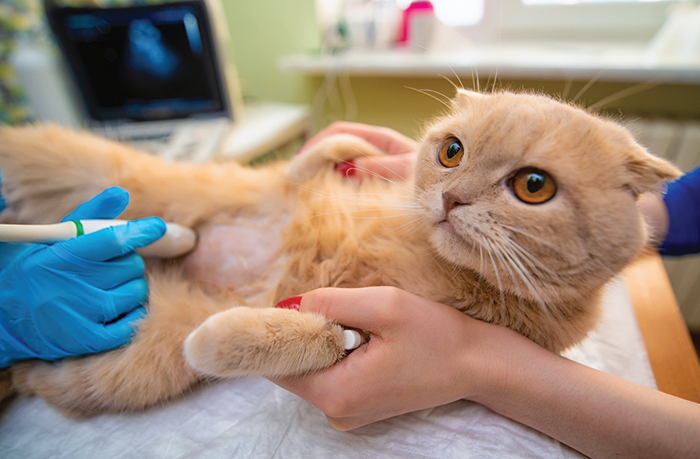
Ascites Is A Serious Symptom Catwatch Newsletter
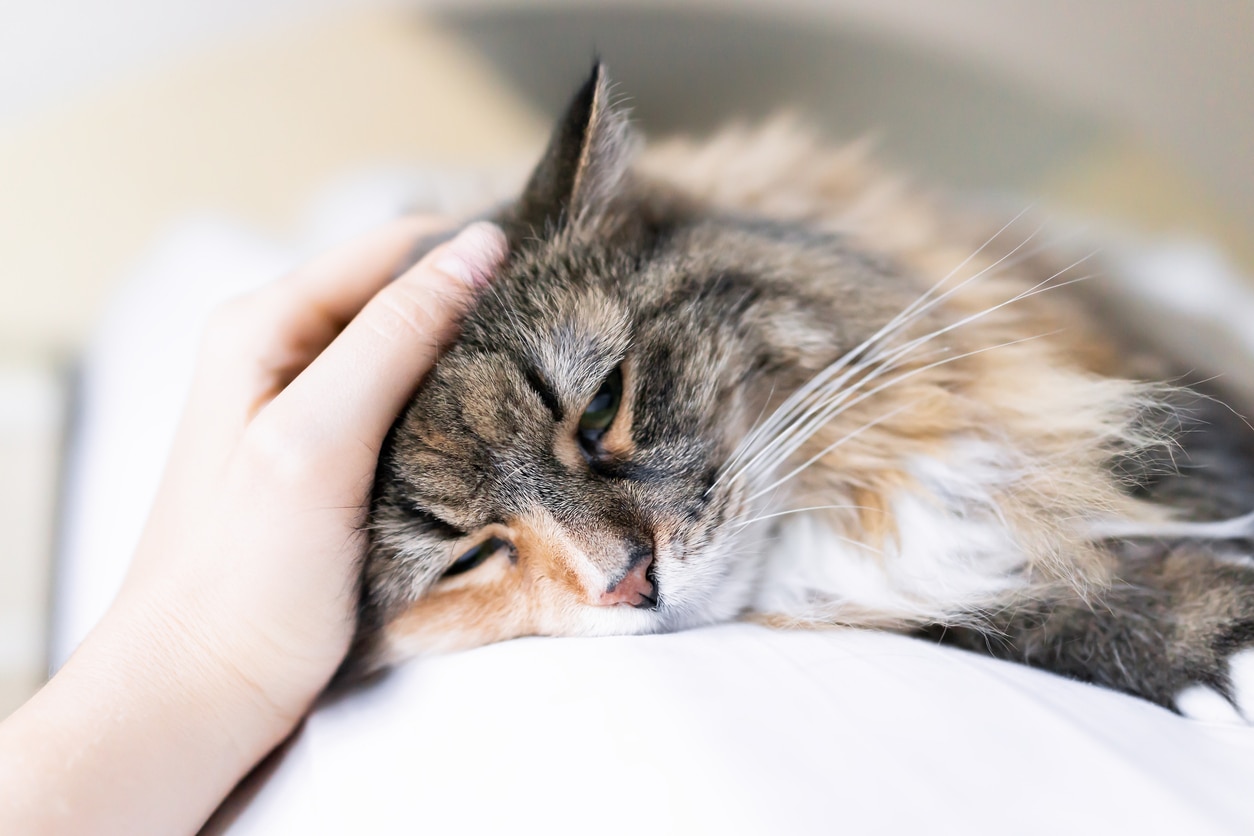
Heart Valve Malformation In Cats Petmd

Causes And Symptoms Of Liver Disease In Cats Firstvet

Ascites In Cats Causes Symptoms And Treatment

Liver Disease In Cats Small Door Veterinary

Ascites In Cats Causes Symptoms And Treatment

Inflammation Of The Abdomen In Cats Symptoms And Causes

What Are The Causes Of Ascites In Cats In 2020 Cat Health Care Cat Health Cat Diseases

What Are The Causes Of Ascites In Cats In 2020 Cat Health Care Cat Health Cat Diseases
/GettyImages-1168982849-e23a486bbc274dfea5fdf8503008fb1c.jpg)

